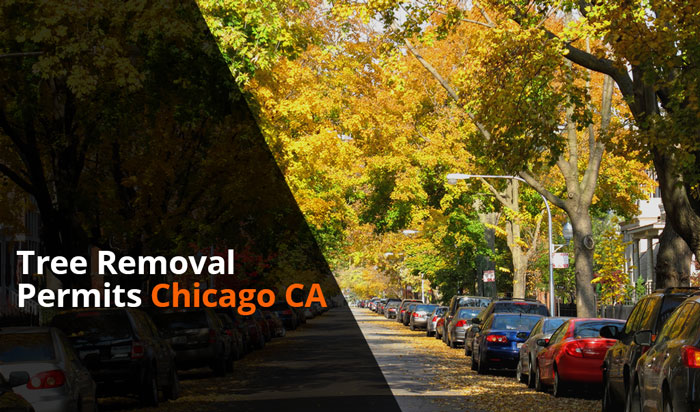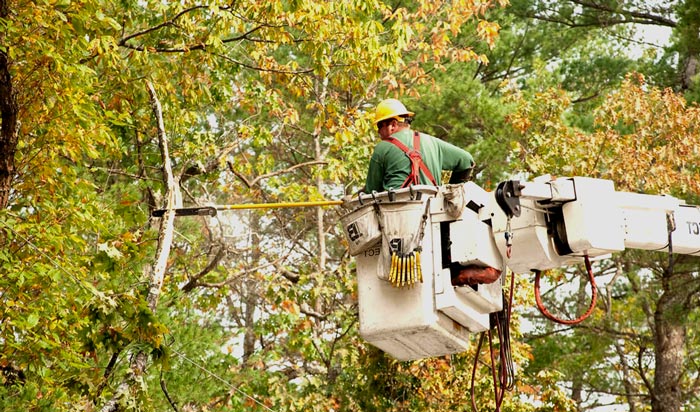The City of Chicago is committed to tree preservation and environmental conservation by enforcing tree ordinance regulations. These regulations define the proper procedures for managing trees within the city.
Through the Chicago tree ordinance, you are required to obtain a permit to remove some trees.
In this summary, you will find information about private trees, public trees, getting a permit, regulations associated with permits, and which trees require a permit.

Remember: Chicago tree ordinance guide is comprehensive providing additional information even on related tree matters.
What we cover
ToggleDo I need a permit to remove trees on my property in Chicago?
No. As long as your trees are on your private property then the city does not require you to obtain a permit. However, you have to make sure that you remove your trees through the use of qualified and certified arborists or removal companies to avoid any accidents.

Can I remove public trees in the city of Chicago?
No. You are not allowed to conduct any tree removal of public trees in Chicago city. This is because the trees are among the preserved trees.
However, if you can get a permit from the forestry department you may be able to do tree removal of public trees.
You have to make sure that you provide all the details required when applying for the permit. It takes a maximum of 7 days for you to get approval after making the application.
Here is a link to the application form.
Can I appeal a tree permit application in Chicago?
No. You are not allowed to remove your neighbor’s overhanging tree without getting their permission.
However, you can trim any branches overhanging your property. Make sure you return all the branches to them.
However, if it is tree removal, make sure that you get their consent and that you are not breaching any tree preservation codes.
Can I remove my neighbor’s overhanging tree in Chicago?
All the trees growing on any public land from streets, parkways, and parks are owned and managed by the city administration.
As a result, all the work required on these trees is coordinated by the Chicago Bureau of Forestry. There are several things that might fall under this which include pruning, trimming, watering, treatment, and removal under some circumstances.
Circumstances under which public trees may be removed in the city of Chicago include the following.
- If there is a major development taking place and approved by the city administration.
- In case the trees are diseased and infested by pests such that they become a hazard to either the public or other trees.
- If the trees are dead
- If the trees are interfering with traffic lights or obstructing traffic.
In case the trees are interfering with public utility systems such as gas lines, power lines, and sewer lines.
Who maintains trees on public land in the city of Chicago?
All the trees growing on any public land from streets, parkways, and parks are owned and managed by the city administration.
As a result, all the work required on these trees is coordinated by the Chicago Bureau of Forestry. There are several things that might fall under this which include pruning, trimming, watering, treatment, and removal under some circumstances.
Circumstances under which public trees may be removed in the city of Chicago include the following.
- If there is a major development taking place and approved by the city administration.
- In case the trees are diseased and infested by pests such that they become a hazard to either the public or other trees.
- If the trees are dead
- If the trees are interfering with traffic lights or obstructing traffic.
In case the trees are interfering with public utility systems such as gas lines, power lines, and sewer lines.
Is it illegal to remove protected/preserved trees in Chicago?
Yes. It is against the law to remove or damage any trees that are categorized as protected including public trees in the city of Chicago.
Anyone found guilty of such an offense will pay heavy fines as determined by the Bureau of Forestry.
Tree Services by City in IL
Tree Removal Chicago
Tree Removal Arlington Heights
Tree Removal Normal
Tree Removal Crystal Lake
Tree Removal Aurora
Tree Removal Evanston
Tree Removal Hoffman Estates
Tree Removal Quincy
Tree Removal Rockford
Tree Removal Schaumburg
Tree Removal Oak Park
Tree Removal Hanover Park
Tree Removal Joliet
Tree Removal Bolingbrook











